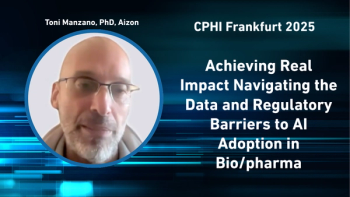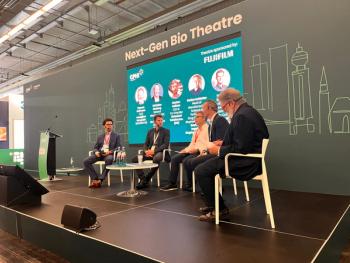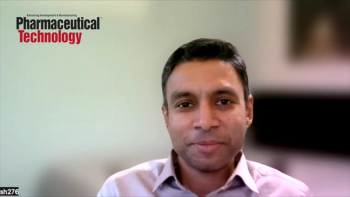
With artificial intelligence and digital technologies transforming the CDMO space, industry leaders at CPHI Frankfurt shared their successes and identified pitfalls.

With artificial intelligence and digital technologies transforming the CDMO space, industry leaders at CPHI Frankfurt shared their successes and identified pitfalls.

Digital transformation, data integrity protocols, and regionalized supply chains are crucial strategies for optimizing drug development and manufacturing efficiency, as revealed in our exclusive interviews.

Shilpa Biologicals CEO Sridevi Khambhampaty addresses funding pressures, regional supply strategies, and expanding ADC development.

A wide-ranging discussion with RNAnalytics’ Viktoria Enkmann touched upon the technology and equipment necessary for modern nanoparticle analysis, as well as global concerns.

Biologics output improves via planning and automation as digitalization predicts batch outcomes, requiring strong data and worker expertise, KBI Biopharma’s Sigma Mostafa explains.

In the conclusion of a two-part conversation, Viktoria Enkmann of RNAnalytics says she had a hard time understanding the United States’ mRNA decision in August 2025.

Digital platforms, automation, and new tech are driving efficiency, innovation, and advanced skill building in biomanufacturing, according to Sigma Mostafa of KBI Biopharma.

Toni Manzano, PhD, discusses his CPHI Europe presentation, stating that AI is essential for managing complex drug and biologics manufacturing.

Biopharma innovators were recognized at CPHI 2025 for advances in drug delivery, continuous bioprocessing, and supply chain capabilities shaping global therapies.

Toni Manzano, PhD, Azion, says AI integration in drug manufacturing necessitates regulatory risk assessment, cloud infrastructure for big data, and strict data integrity compliance.


According to a CPHI Frankfurt keynote panel, Europe's biopharma sector must accelerate adaptation to new regulations to stay competitive with the US and China.

Toni Manzano, PhD, Aizon, says AI adoption in biopharma, supported by new GXP guidelines, is challenged by poor data quality and the complexity of industrializing many specific models.

Silvia Scaglione of React4Life explores how organ-on-chip systems, AI, and multi-organ models are revolutionizing preclinical testing and advancing personalized therapeutics.

In the first of two parts, Viktoria Enkmann addresses problems with quality control for personalized medicines in the context of lipid nanoparticles and RNA therapeutics overall.

Enzyme engineering holds promise, but Marina Cañellas of Zymvol Biomodeling says the enzymes themselves need to be improved through increased discovery and investigation to be able to achieve a greater amount of chemical reactions.

Vishal Mukund Sonje, Vaccine Manufacturing Lead, CEPI, talks about the challenges that arise in the manufacturing of vaccines in various global regions and gives a preview of his presentation at CPHI Frankfurt 2025.

Organ-on-chip platforms and AI integration are revolutionizing drug development, personalizing medicine, and advancing pharma research, says React4Life’s Silvia Scaglione.

Pharmaceutical Technology® spoke with Tara Dougal, Event Director for Pharma at Informa Markets about what attendees at CPHI Frankfurt should expect this year.

SK pharmteco expands US peptide production capacity, strengthening domestic API manufacturing and accelerating biopharma process development.

A new leadership summit and expert tracks explore AI, sustainability, and next-gen manufacturing shaping the future of global biopharmaceutical development.

CPHI Pharma Awards 2025 highlight breakthroughs in bio/pharma technology, sustainable manufacturing, and industry leadership.